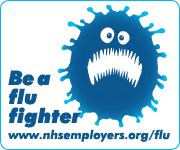Occupational Health Services
Avon Partnership Occupational Health Service (APOHS) supports
individuals and organisations on all aspects of health at work.
They consider how current, previous or potential health problems
may be affected by it.
The major role of the service is to provide independent advice
to managers and employees on:
- The health of people at work
- The quality of the working environment
- Health risks of the workplace
- The occupational implications of risks to health that can occur
at work and the ability of employees, through reasons of their
health, to undertake the work
The potential effects of work on health can be assessed at the
start of employment and at agreed intervals during employment, as
required. This includes health risks associated with exposure to
different biological, chemical, physical, ergonomic and
psycho-social hazards of the workplace. We then work with the
individual and organisation to maximise the health at work of all
individuals.
This includes the provision of:
- Immunisations required for specific work exposures, eg for
Diphtheria, Hepatitis B, Poliomyelitis, Rubella, Tetanus,
Tuberculosis and Typhoid
- The management of needlestick injuries and other accidental
occupational exposures to blood/body fluids including medication
for post-exposure prophylaxis
- Statutory examinations for health surveillance, eg Control of
Substances Hazardous to Health (COSHH), regular ionizing radiation,
lead and asbestos exposure medicals, eyesight tests for regular
users of display screen equipment, respiratory function testing for
hazards such as gluteraldehyde and isocyanates, fitness screening
for night shift workers, and audiometry if required
Health monitoring - where appropriate, establishing;
- Staff aspects of the control and management of work acquired
infections
- Workplace risk assessments for health and safety needs,
environmental exposure monitoring and environmental controls
- Overseas travel advice, including targeted, specific, written
information for different countries and appropriate
immunisations
- Information about community support groups such as Alcoholics
Anonymous, drug advisory groups and smoking cessation clinics
- Advice to persons in vulnerable or susceptible groups, (eg
associated with pregnancy or asthma), of their exposure levels to
hazards such as noise, chemicals, dusts and solvents
- Determining if a medical condition has been caused or
aggravated by the work undertaken or exposures associated with
it
- Determining if a person is fit to resume work following an
episode of ill health, or, if not yet, when they might be able to
return
- Considering, if somebody needs clinical treatment: how long it
will last; what will be their ability to undertake a full range of
 duties and attend
work during on-going treatment; and, on its completion, what will
be their future ability to attend regularly without further
problems and absences
duties and attend
work during on-going treatment; and, on its completion, what will
be their future ability to attend regularly without further
problems and absences
Arrangements for:
- Physiotherapy to help with musculoskeletal problems
- Counselling and other psychological support
- Alcohol, drug and lifestyle screening
- Health promotion